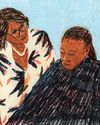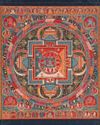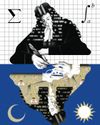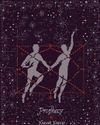
Identity evolves. Social categories shrink or expand, become stiffer or more elastic, more specific or more abstract. What it means to be white or Black, Indian or American, able-bodied or not shifts as we tussle over language, as new groups take on those labels and others strip them away.
On August 3, 1989, the Indigenous identity evolved. Moringe ole Parkipuny, a Maasai activist and a former member of the Tanzanian Parliament, spoke before the U.N. Working Group on Indigenous Populations, in Geneva— the first African ever to do so. “Our cultures and way of life are viewed as outmoded, inimical to national pride, and a hindrance to progress,” he said. As a result, pastoralists like the Maasai, along with hunter-gatherers, “suffer from common problems which characterize the plight of indigenous peoples throughout the world. The most fundamental rights to maintain our specific cultural identity and the land that constitutes the foundation of our existence as a people are not respected by the state and fellow citizens who belong to the mainstream population.”
Parkipuny’s speech was the culmination of an astonishing ascent. Born in a remote village near Tanzania’s Rift Valley, he attended school after British authorities demanded that each family “contribute” a son to be educated. His grandfather urged him to flunk out, but he refused. “I already had a sense of how Maasai were being treated,” he told the anthropologist Dorothy Hodgson in 2005. “I decided I must go on.” He eventually earned an M.A. in development studies from the University of Dar es Salaam.
Esta historia es de la edición February 27, 2023 de The New Yorker.
Comience su prueba gratuita de Magzter GOLD de 7 días para acceder a miles de historias premium seleccionadas y a más de 9,000 revistas y periódicos.
Ya eres suscriptor ? Conectar
Esta historia es de la edición February 27, 2023 de The New Yorker.
Comience su prueba gratuita de Magzter GOLD de 7 días para acceder a miles de historias premium seleccionadas y a más de 9,000 revistas y periódicos.
Ya eres suscriptor? Conectar

MEAN TIME
“Hard Truths.”

ENLIGHTEN ME
The secret beauty of mandalas.

THE BEST OF THEM
His was a genius for the ages. Will Gottfried Leibniz ever get his due?

DEATH CULT
Yukio Mishima’ tortured obsessions were his making—and his unmaking.

Prophecy
The night of Dev’s twenty-second birthday, he was invited to sit with the elders after dinner.

A TALE OF TWO DISTRICTS
Lauren Boebert and Colorado’s red-blue divide.

THE TIKTOK TRAIL
Andean migrants draw others to the U.S. with videos depicting themselves as living the American Dream.

LOVE AND THEFT
Did a best-selling romantasy novelist steal another writer's story?

OUR NEW TWO-FACTOR AUTHENTICATION SYSTEM
Our two-factor authentication system is expanding because text messages and e-mailed codes are becoming less secure. Also, we’re committed to making sure your log-in process is more of a hassle than it needs to be.

STILL PROCESSING
Why is the American diet so deadly?